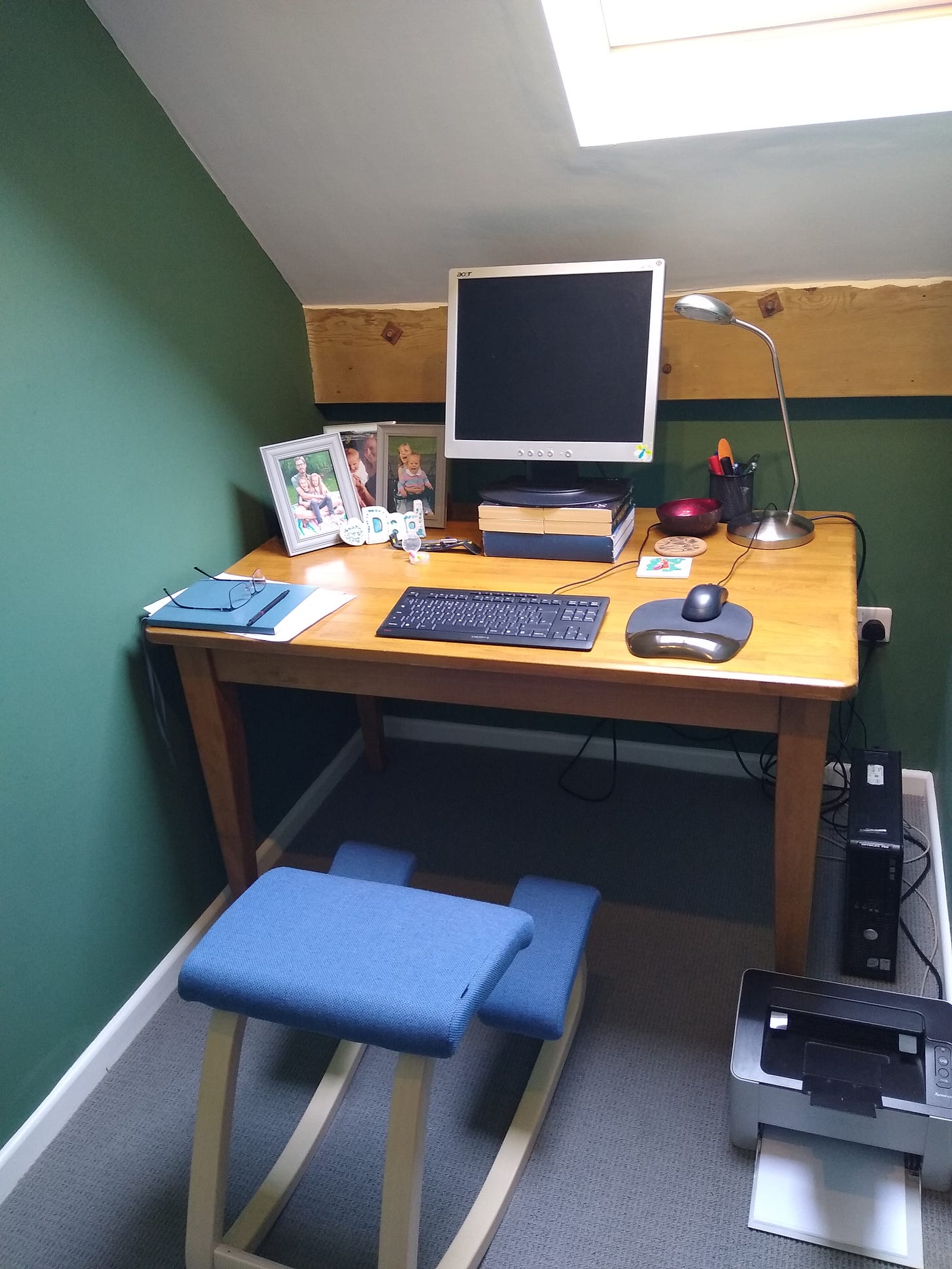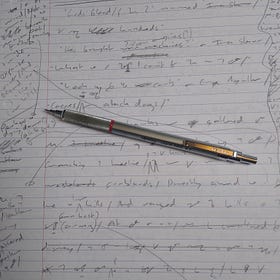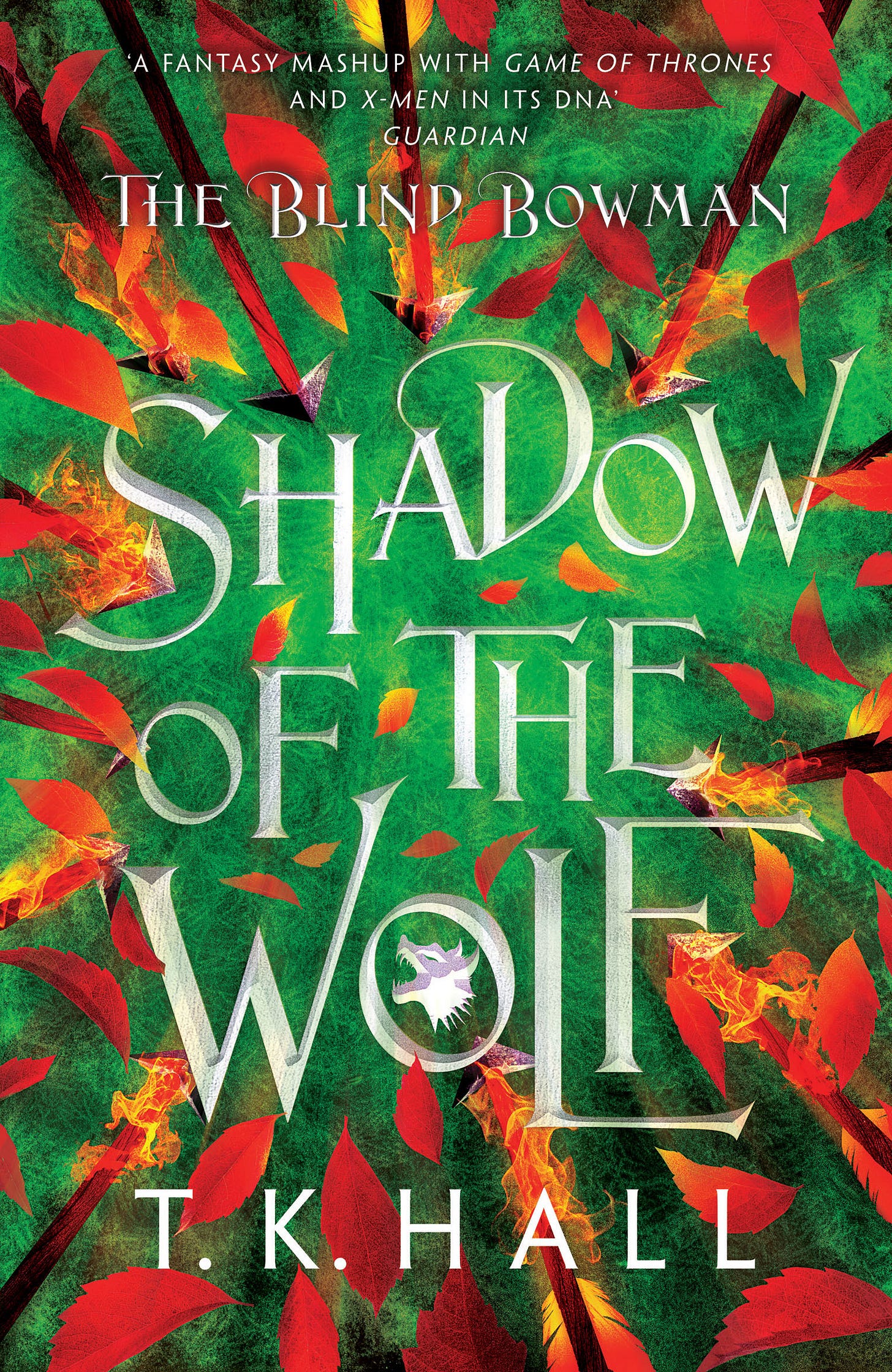I write my novels in a tiny room set above our garage. It’s a bare writing cell, containing little more than a chair and desk and a few books. It’s separated from the main house – far enough away to be out of range of Wi-Fi.
When we were converting this space into a useable room, several people asked me how I was going to connect to the internet. To which I’d reply that I didn’t want to be online in my writing room. Okay, they would say, but how are you going to connect to the internet? When I insisted that I didn’t WANT this room to be online, they would invariably repeat the question in a different form, or outline some technical solution to my ‘problem’ of having no Wi-Fi.
It was uncanny. Whenever I said I didn’t want the internet in my writing room, it was as if people couldn’t even hear me. As if the very idea of a permanently offline space simply didn’t compute. People seemed to believe, when I walked into my analogue writing room, that I would be entering some kind of void.
In fact, the opposite is true. My writing room is one of the most real places I know.
The solitude here, and the quietude, with no emails or notifications – without even the background hum of electronics - helps me to come fully back into my body, and reengages all my senses.
My phone never comes into my writing room. The only devices here are my ancient desktop computer, and an old black-and-white printer.
In this space I sit down and write. First, I draft 1500 words freehand, using pencil and paper. Then I transcribe those words onto screen, tweaking a little as I go. That’s it. A process that is as simple and direct as I can make it, with minimal involvement of machines.

I realise this offline environment would not suit every writer. Many thrive using hi-tech tools.
has written passionately and persuasively about Scrivener, and how it has been vital in helping him create his brilliant online serials.But for me, through trial and error, I’ve found that my writing flourishes when I keep my setup as simple as possible. Music; Wikipedia pages; online dictionaries; alerts and pings – all these are diversions I don’t need.
Without them I can breathe, and dream, and be fully human, focusing wholeheartedly on this most human of activities, telling stories, which human beings have been doing from the very beginning.
“...More and more I find myself turning all the way on only when the machines are turned off. I want to feel relaxed and plugged into my daydreams rather than a piece of software.” [Novelist and short story writer Joe Hill]
“I love walking into my office with no electronics, no distractions. Just slippers on my feet, tea on the desk, and a story in my fingers.” [Newbery Medal winner Kelly Barnhill]
Walking into my writing room feels, I sometimes imagine, not so different from a monk entering his cell, with his single-minded, undistracted purpose of meditation.
First, I become fully embodied, aware of every sensation. The taste of tea, the scratch of my pencil across the page, birdsong from outside.
Until all that disappears...and I dissolve into the fifth sense of the mind, and the vivid play of the imagination. I watch a scene unfold in such detail that my only task is to observe, and to keep my pencil moving as the story tells itself. On good days, I become so absorbed in this flow of sentence and image that I am beyond myself – I don’t exist at all – there are only the words taking shape on the page.
This feels like magic, and is the reason, I think, that we storytellers keep on writing. No matter how challenging it might be to craft novels, or how frustrating trying to get our work noticed, we keep coming back to this process that feels so freeing and so wondrous.
And for me, at least, that magic rises far more readily when I switch off the machines.
How about you? Do you write in a tech-free refuge, or do you work better online? Please let us know in the comments, or drop me a direct message.
Thanks for reading – and happy writing!
Tim
P.S. This article is a sequel to the one below, about the joys of drafting freehand:
To Write Freely, Write Freehand
In the course of writing three novels, there’s one practice I’ve found to be absolutely invaluable. In fact, it has proven transformative, not only boosting the quality and consistency of my writing, but helping to put the joy back into my storytelling.
P.P.S. Don’t forget to check out the start of the Blind Bowman trilogy, Shadow of the Wolf, which SFX Magazine called “wild, weird and wonderful,” and bestselling author Sally Green pronounced her “favourite book of the year.”









Love it. I use a cheap one-off-purchasable but highly effective program called 'Cold Turkey' which can block web pages or even the entire internet / web browsers--which is how I use it. Writing time = Cold Turkey on for a 'timed block' = all internet off. I also have a dumbphone rather than a smartphone. I actually hate the internet. Although it's quite good on occasion for reading stuff like this post... 1500 words...awesome... Is that in conjunction with working f/t? Stephen King says to do 2,000 a day but writing is his f/t job and with schoolteaching and small children 2,000 is rare for me. I aim for 500 and so often hit 1000.
I used to have a second hand tiny computer, half the size of a normal laptop, and I never set it up to access the internet. All I did on it was write. I did enjoy the lack of distraction but these days I use networked backups so it wouldn’t work for me now. The days when I sit down to write and get distracted, I know there’s really something about the writing I’m avoiding so if I wasn’t looking up ‘useful’ details or browsing Substack I’d just be off doing important pencil sharpening or whatever instead.